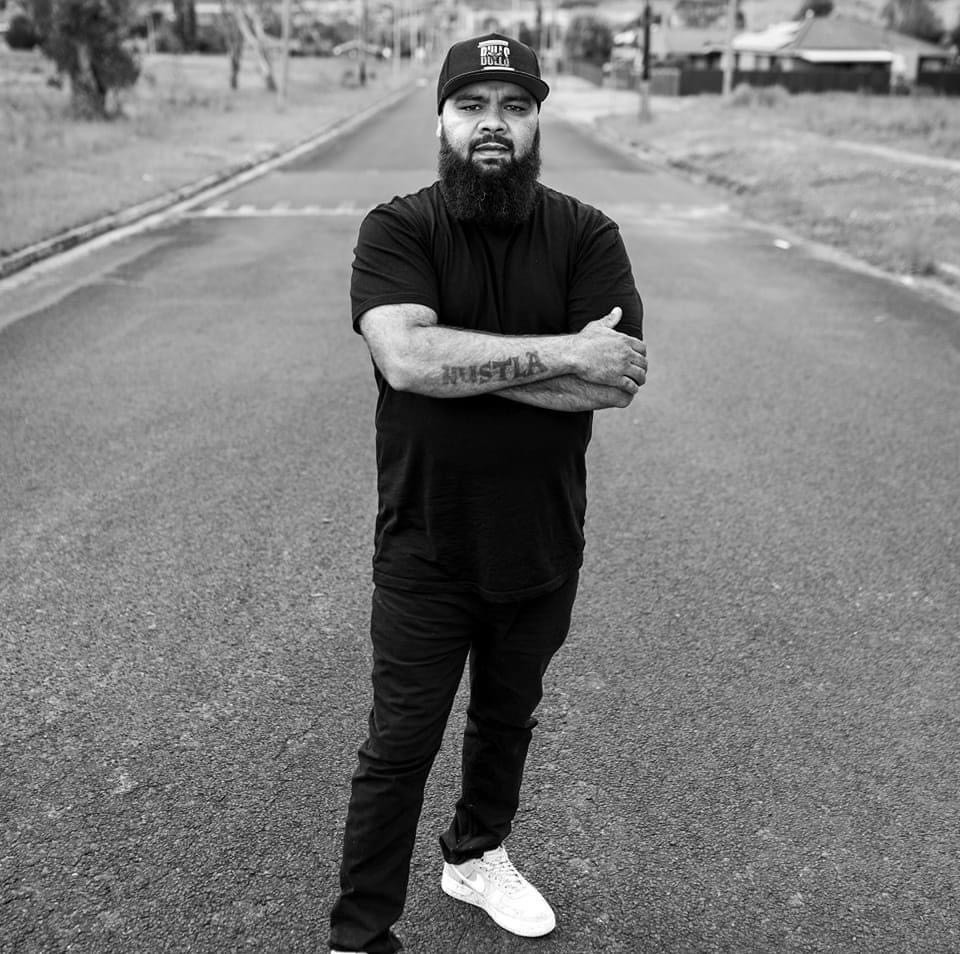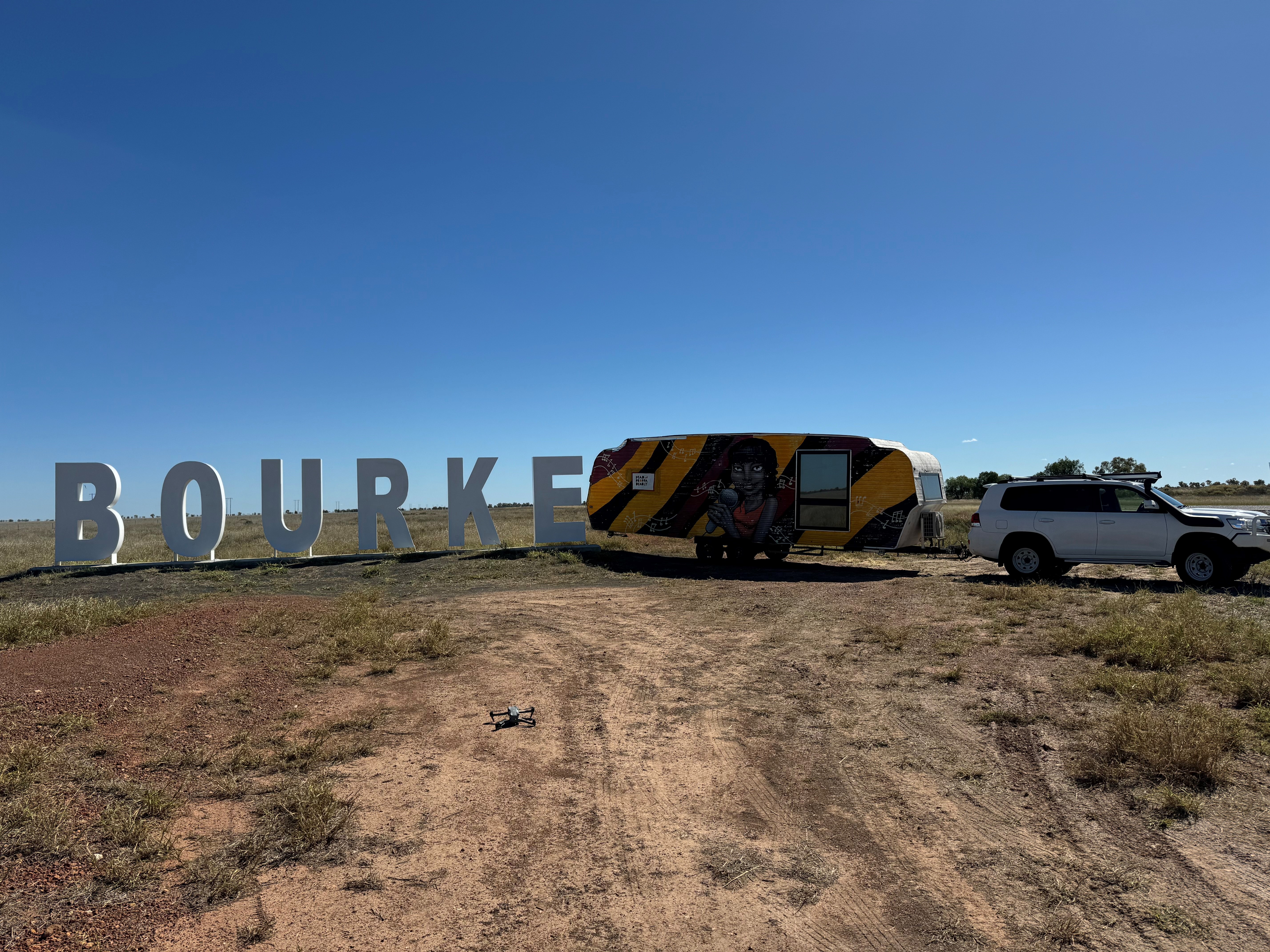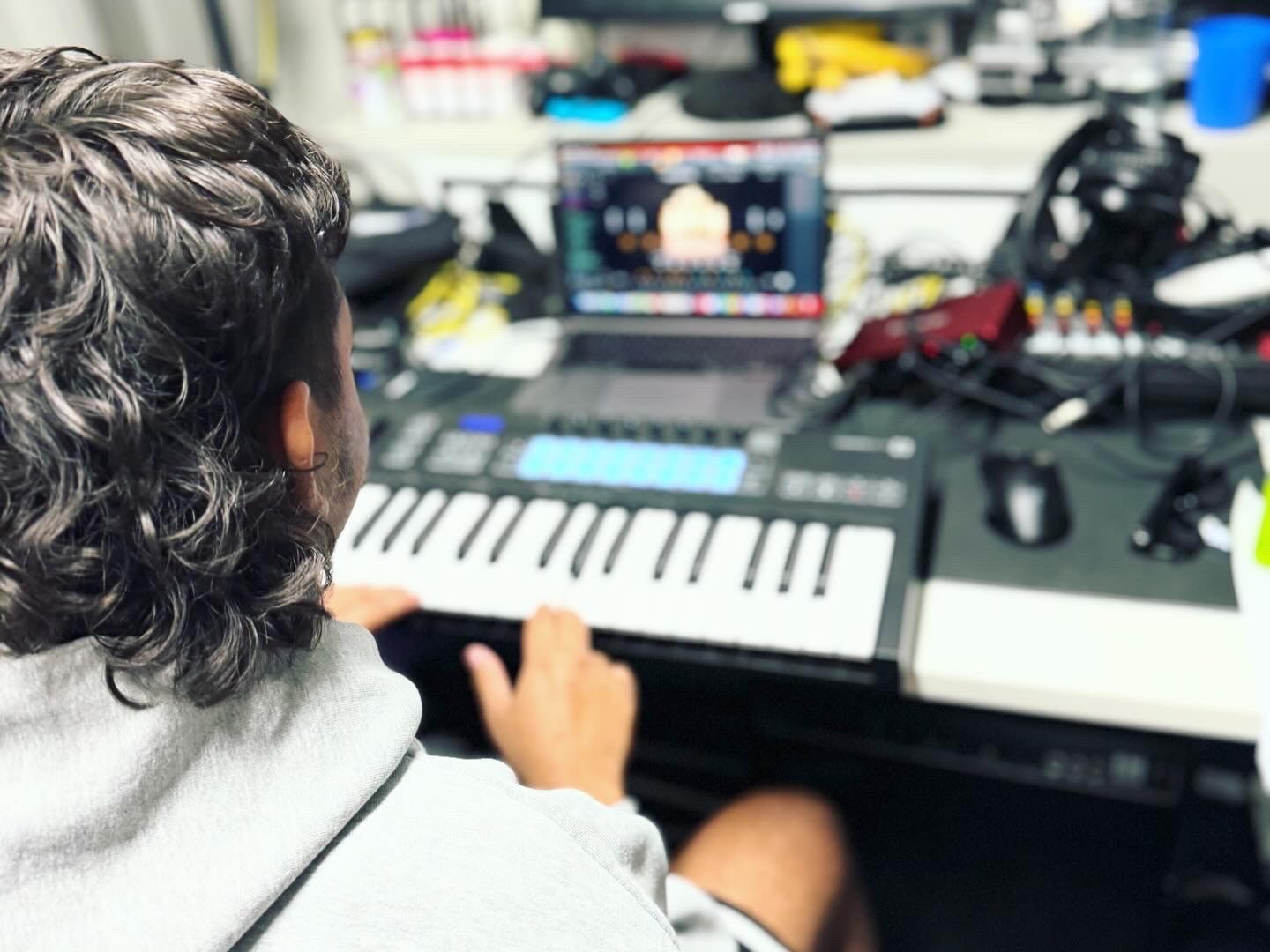
When Nate Weatherall started Mad Proppa Deadly, he wanted to be a music mentor for young people – something he wished he’d had. As a young musician, he felt he could have used more support to take his skills, confidence and career to the next level.
‘In my own community, there weren’t the spaces to continue music,’ Nate says. ‘There were no mentors telling me “these are the next steps” – finding gigs, rehearsing – the whole journey and process of being an artist, and the training.’
Amplifying connections
Nate first set up Mad Proppa Deadly as a small business on Gumbangerri Country (Armidale) in NSW. Clients would hire him to run music workshops for young Aboriginal and Torres Strait Islander people. Nate would teach them how to write, play, record and edit. He loved the work, but the goals of his clients felt too short-term. To make sure he could create a sustainable model, he incorporated Mad Proppa Deadly under the CATSI Act.
‘I’d done workshops for different non-Indigenous organisations and I built that skill through those guys,’ says Nate. ‘It would also be a moment of coming into a community, working for a week and then leaving for a while. For me that was failing mob. You’re giving a little bit of hope then you’re leaving them for years and coming back, taking another story and building another project, then stepping out. I didn’t like that practice – it didn’t help mob grow. I wanted to start moving in a way that was more sustainable for community.’

Nate used the connections he’d built over the years through workshops with schools and in communities. He planned to do music workshops a new way, to ‘train people up and leave them with something so they can continue to be creative in their own time’.
Nate adds, ‘Now we help young people learn how to write and record their music to continue to be creative. For me that’s a huge part of being mob is passing on knowledge.’
Building a musical movement
To transition to a CATSI Act corporation, Nate drew in board members with expertise in music and with networks that could benefit their goals.
‘Becoming a corporation, we just followed the steps. Building a corporation, you need to have the right people around you. Have people around you who are like-minded and want to support the community and your vision,’ offers Nate.
‘We built the board body around people we had connections with. We wanted to make sure we were working with people who had the same vision to support young people in different communities.’
Setting up a vision early helped them to work out what they needed to do to move forward and stay the path. For Mad Proppa Deadly, the vision was helping young people continue to grow and be creative.
It was then important to stay dedicated to what they’d set out to do. To help people build their capacity. Nate says, ‘that’s where we really shine.’
Even with a vision and drive, it was still hard to get the wheels turning at the start.
‘As a not-for-profit, it was hard because we had to apply for grants and we were knocked back on a lot of the grants we first applied for,’ Nate says.
‘But we work with a lot of communities who were successful and we reached out to them and built our reputation that way. We had these skillsets and we were building capacity and passing on knowledge, and I used that to my advantage – this is where I’m most comfortable and I can provide those opportunities for communities to grow.
‘We incorporated in 2020. From there we’ve just been moving and going through the steps and growing.’
Striking a chord with partners and sponsors
That strong, shared vision has seen the small business grow into Mad Proppa Deadly Indigenous Corporation – a not-for-profit music mentorship program drawing partnerships from prominent music and technology businesses.
‘When we first started we had turned an old caravan into a music studio,’ recalls Nate. ‘That worked for us and what we were trying to do – having that space for people to come and learn. Now we’ve signed a 5-year lease to build a creative centre in Armidale.’

Mad Proppa Deadly’s now attracting partnerships from the music industry and audio companies. A collaboration with Ableton Live is supplying the computer program they set up for music recording, leaving communities with a high quality, high value program for free.
Bringing in partners happened organically from the board’s networks and from starting conversations in the right moments.
‘Our partnerships come from building relationships,’ says Nate. ‘We converse with artists in the city and they work with others in this space. Find others in the community who can support and help you grow. They bridge the gaps for you – whether it’s a phone call or an email, that’s how we build those connections.’
Having a strong board of passionate people that understand and want to achieve Mad Proppa Deadly’s vision is key.
‘We have a friend on the board who’s always supported us from the start – he’s our industry connector and is able to get people based around Sydney for us.
‘Another board member has been solid for helping us engage with community and giving us pointers. He’s teaching teachers how to work in the space, like Aboriginal history.
‘It’s not a paid situation for them but they see the value in the work we do and they want to contribute.’
March to your own beat
When asked about the main lessons he’s had from building the corporation, Nate has some sound advice.
‘Stay dedicated and chip away at what you’re trying to achieve. Make sure your vision’s clear and stick to it. If you try to do too much outside of what you know, it gets cloudy and crowded, and you’re not focused on your true mission.’
The corporation doesn’t hesitate to bring in other specialists when needed. Nate says, ‘If there are other things I want to bring in, I get other mob in that field of work to come in and train. I don’t take on a job I don’t know that will take me away from what I’m trying to do.’
Dancing the next steps
Mad Proppa Deadly’s future is about involving more young people in its operations and creating the next generation of local Aboriginal and Torres Strait Islander music mentors.

The team’s putting measures in place to encourage young people to join and be members. This is important for growing local capacity and Nate hopes the young people will continue Mad Proppa Deadly’s vision in their home communities.
‘I can show you but every community is different – you go on different Countries and every place is different,’ Nate says. ‘I can show you how to do this but you have to make it fit and see how it’s going to work for you. We build it into their own structure so it works for themselves.
‘They can now have the support networks around in the music industry. I can help them because I’ve been through it. These are the steps I missed out on because I never had the people around showing me what to do.
‘We hope this helps communities and young people to be more sustainable in what they’re trying to do and the goals they’re to achieve in their musical journey.’